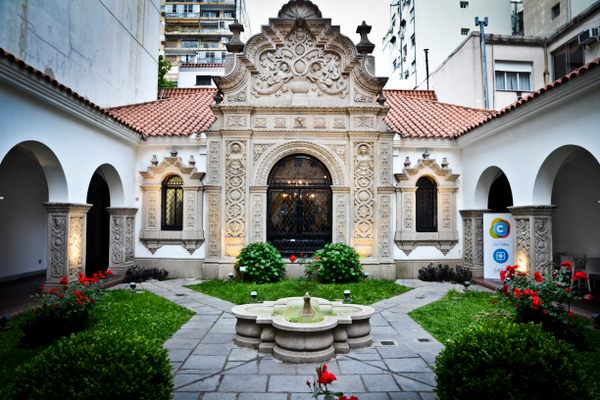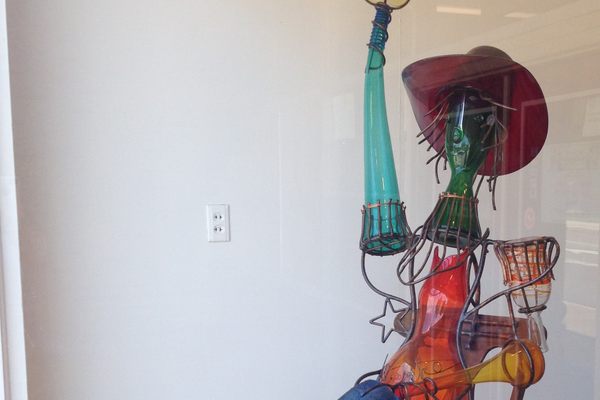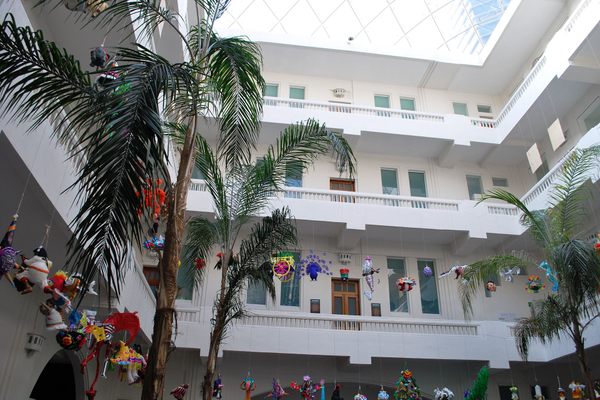Xul Solar Museum
Xul Solar was an artist of alternate worlds, inventor of languages, and dreamer of utopias.
With dreams of reforming and perfecting the universe, Argentine artist Xul Solar invented two languages, a spiritual form of chess, a modified piano, and painted works based on his own blend of cosmic mysticism.
The Museo Xul Solar in Buenos Aires holds most of his art, along with documents, letters, and the “heirlooms of the cosmos” that he built. The galleries are located just below Solar’s former apartment, where his rooms are preserved along with his library of around 3,500 books.
Born in Argentina in 1887 as Oscar Agustín Alejandro Schulz Solari, he later changed his name to Xul Solar, or “solar light.” His paintings of mystic worlds and alternate universes are filled with floating cities, arcane symbols, angels, winged horses, pyramids, snakes, and frightening half-breeds of airplanes and people.
His vision of a utopia focused on the creation of a universal language. Believing Spanish to be several centuries out of date, marred by words that were too long and too cacophonous, he invented Neo-Criollo. It was derived from Spanish and Portuguese, with bits of French, English, Greek, and Sanskrit, and meant to be a universal language for South America. Solar tried to speak it with everyone and wrote several texts in Neo-Criollo, including “San Signos,” a collection of 64 writings based on the hexagrams of the “I Ching.” Later, he invented the more complicated Pan-Lengua, an international language rooted in math, music, astrology, and visual art. It was monosyllabic, without grammar, and had an invented script and duodecimal number system
In modifying a piano to make it simpler to learn, he built three rows of colored keys for playing a hexatonic scale of his own invention. The colors of the keys corresponded to the colors in his paintings, using the canvas as sheet music. Solar’s efforts at merging spiritualism with art included starting a puppet theatre for adults that presented religious and poetic works, with the characters representing the 12 astrological signs. He dreamed of a self-sufficient city in outer space that would be a “celestial Jerusalem” and believed that flying cities could solve the world’s overpopulation problem.
Xul Solar also invented and modified games to fit his new rules for the universe. With soccer, he asked: “Why play with only one ball, and not with three or four, and divide the field into six or twelve parallel sectors, like in rugby, and each player wear a shirt with different letters so that words and phrases are formed?” Pan Chess, his spiritual and complex version of chess, was played on a 13x13 board instead of 8x8 and had constantly changing rules based in the Pan-Lengua language. The rules could at once be a collection of music notes, a dictionary for the creation of new languages, and a way to ask “What are we playing?”
When he died in 1963, he was clutching a rosary he’d made himself out of 71 pieces of painted wood. His wife Lita said that he “did not believe in death, for him there would always be a tomorrow.”

















Follow us on Twitter to get the latest on the world's hidden wonders.
Like us on Facebook to get the latest on the world's hidden wonders.
Follow us on Twitter Like us on Facebook